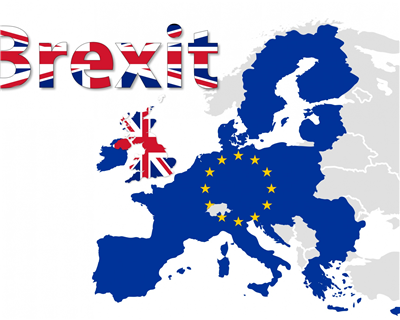How would Brexit affect UK trade?
As millions of UK citizens queued up at polling stations the length and breadth of the country, Ollie Gordon talked to trade economists, business associations, and exporters about the likely consequences of Brexit on UK trade.

As millions of UK citizens queued up at polling stations the length and breadth of the country, Ollie Gordon talks to trade economists, business associations, and exporters about the likely consequences of Brexit on UK trade.
On 1 January 1973, after almost 15 years of diplomatic flirtation, Britain was finally admitted into the EU’s predecessor, the European Economic Community (EEC). Ten years earlier, Prime Minister Edward Heath – then Lord Privy Seal – had made impassioned appeal to the European community after Britain’s accession to the EEC had been vetoed by France: “I say to my [European] colleagues: they should have no fear. We in Britain are not going to turn our backs on the mainland of Europe or the countries of the Community.” Fifty-three years on, the UK stands on the brink of doing exactly what Heath had promised it wouldn’t.
Citizens of the UK prepare to go to the ballot box on Thursday 23 June to decide the country’s future relationship with its European neighbours, in what could turn out to be a watershed in the country’s economic and political development. Although the debate surrounding the referendum has pivoted on important social issues such as questions of national sovereignty and immigration, by far the most important argument has surrounded the possible economic outcome of secession. And within that economic argument, the key question has been one of trade: would the UK trading prospects be better off in or out of the EU?
Forty-five percent of UK exports go to the EU and some three million UK jobs are linked to UK exports – 10% of all the jobs in the country. But economists argue there are even more important, indirect benefits to trade: increasing trade boosts productivity of domestic companies, and increased productivity swells GDP, which in turn improves living standards. A healthy exports sector attracts foreign investment, which is sorely needed in the UK to cover its hefty annual current account deficit. So, trade: it’s important.
Two sides of the coin
The Remain side of the debate assert that leaving the EU would severely damage UK trade, but the Leave brigade reject that as wonton fearmongering. So what are the arguments?
Remain stress that a vote for Brexit could see the country lose access to the EU’s Single Market – a free trade area that encompasses 500 million people, and under whose rule goods can pass unencumbered by tariffs and other trade barriers between the EU’s 28 member countries. When the Britain entered the EEC in 1973 it received a substantial boost to trade volumes, something that Remain believes would be reversed if the country were to secede. The Leave camp refutes that argument, asserting the UK would soon negotiate a deal with the EU and in the longer term trade more with the rest of the world, particularly the Commonwealth countries. They maintain that the UK exports more to the EU than the other way around, meaning there’s a strong incentive for the EU to negotiate a new deal quickly, to limit financial harm to their own exporters.
However, Remain counters that the UK’s total exports to the EU comprise 13% of country’s GDP, as opposed to 3% the other way around, meaning the UK needs the EU more than the EU need the UK and, as such, negotiating leverage would be weighted on the EU’s side.
Leave also argue that the UK would be able to negotiate better trade deals by its own, without the impediment of the protectionist interests in continental Europe. Remain’s counter-argument is that UK exporters benefit hugely from the negotiating power wielded by the EU, and such beneficial terms wouldn’t be possible if negotiating without the bloc’s economic and political heft.
The economists’ view
If you have been following the Brexit debate closely, you will be forgiven for scratching your head at the hugely divergent economic forecasts of the possible outcomes to Brexit. Turns out, economics isn’t an exact science – who would have thought it? In truth, it all depends on the assumption one makes about the nature of the UK’s post-Brexit trade deal with the EU.
The UK Treasury’s estimate forecasts trade volumes declining by between 14% and 19% by 2030 in comparison to their current trajectory, on the assumption the UK agrees a bilateral trade deal with the EU similar to that recently agreed by Canada. Although, some believe this forecast a tad severe: Oxford Economics modelled the same scenario and came up with a 7% fall in volumes. The London School of Economics’ Centre for Economic Performance predicts that, in the long term, lower trade with the EU could cost the UK as much as 9.5% of GDP.
A study by global trade credit insurer Euler Hermes found that, without a new Free Trade Agreement (FTA), the UK’s export losses could reach £30 billion – or 8% of total goods exports – by 2019, as opposed to exports growing by as much as £26 billion in the same timeframe. And even with a new FTA and all the same trading partners in place, turnover growth would be halved.
The World Trade Organisation (WTO) has estimated that Brexit would result in trade barriers costing the UK consumer £9 billion a year. In an interview with The Financial Times, WTO chief Roberto Azevedo said that the UK would need to renegotiate trade deals with all 161 of the WTO’s members, in an unprecedented move that would be tantamount to joining the trade body from square one. The process would be an extremely lengthy one and the impact of new tariffs in foreign markets would weigh on UK businesses, adding £5.5 billion to the costs of trade, said Azevedo. The International Monetary Fund (IMF) has stated that the UK leaving the EU would “disrupt and reduce mutual trade,” and that if the UK was to rely on WTO rules, it would “significantly raise trade barriers”.
As doomsday as that all sounds, some believe the negative effects on UK trade will manifest gradually – and indeed Brexit could result in a short-term boon for UK exports. “In the short run, Brexit will have a positive effect on the price competitiveness of British exports because sterling will go down – we expect sterling to depreciate to €0.9 per £1 if the vote is in favour of leaving the EU,” Raoul Leering, ING Bank’s head of international trade research, tells TXF.
Leering points out that no tariffs would be applied by EU for two years after Brexit, thereby protecting UK exports. He caveats that there could be residual damage caused if Brexit results in financial markets turmoil that hampers spending in the UK’s core exporting markets. Following those two years, the effects on UK trade will depend on the outcome of the negotiations. “If it is a friendly divorce, then no tariffs will be applied,” says Leering. “But there will be trade damage anyway because of arising non-tariff barriers. Studies show that those countries outside of the Common Market miss out on the ongoing harmonisation of all sorts of product, standards and border-control rules. Think of environmental, and health and safety rules.” Leering predicts this widening divergence will harm trade up to a cost of 2% of UK GDP within 10 years.
However, Thanos Papasavvas, trade economist and co-founder of macroeconomics, trade and geopolitical analysis firm Equant Analytics, is more ambivalent on Brexit’s potential effect on UK trade. He forecasts three possible outcomes. In the best case scenario, the effect on trade will be minimal, as both parties move quickly to avoid mutual economic fallout. “The reason why that is not the most likely is because 1) both Germany and France have elections next year, and 2) the fear of other countries following suit. They will want to use the UK as an example. France will be harsher, especially under the weak presidency of Hollande.”
Papasavvas’s worst case scenario, which he deems “quite possible”, would be two years of negotiations of WTO rules. Under that scenario, the effect on UK trade would be more significant but would depend on two factors: first, the impact on the UK’s foreign direct investment (FDI) flows, which would depend the outcome of the negotiations between the pair; and secondly, on a potential stock market crash, which Papasavvas considers unlike. “I don’t believe Brexit would unleash another 2008,” he says. “People are hedging themselves against the risk. It will not escalate into a global slowdown.” In any case, in this scenario UK trade would be adversely affecting, but it would just depend to what extent.
In Papasavvas's third – and “most likely” – scenario, both parties will fight to limit the impact, and large companies, SMEs, and banks alike will be able to adjust to it without too much volatility. “We think the transition is not going to be that significant in trade. In that case, Brexit may be the dog that never barked!”
“I still hope the UK will stay, because that would be the most advantageous scenario for it. But if it were to leave, we still think the impact would not be that significant unless there was a broader correction in the same way as 2008. it would be a very gradual, very granular impact; which will allow a period of adjustment.”
And there are indeed some economists – not many – that maintain that Brexit would actually be beneficial for UK trade. Pro-Leave economists have not done much detailed modelling on the possible effects on UK trade but one that has is Patrick Minford of Cardiff University. Minford forecasts a boost to UK GDP growth by 2020 on the basis of the country disassembling all tariffs unilaterally. If the UK was to leave the EU and not negotiate a new trade deal with the bloc or put up any new trade barriers, Minford predicts a 4% boost to GDP. His assumptions see a boost to some sectors of the economy on the back of cheaper imports. But the approach suggests irreparable damage to many exporting firms, with sectors such as manufacturing effectively eliminated and leaving mainly industries such as design, marketing and hi-tech.
The Industry perspective
If the scales of evidence thus far seem somewhat weighted towards the Remain side of the debate, well that imbalance is only exacerbated when the industry’s views are considered.
In recent months, business leaders have been busy positioning themselves on either side of the debate. In May, 300 business leaders signed a letter to The Telegraph newspaper warning that the UK’s competitiveness is being undermined the country’s membership of ‘a failing EU’. However, just today, over 1,280 executives, including directors of 51 FTSE 100 companies, signed a letter to The Times newspaper backing the UK’s EU membership.
So for business backers, Remain has the quantity. But what about the quality? When considering the effect on UK trade, who we really want hear from is those companies that actually export. Although a list of the largest UK companies by export volumes is hard to come by, one source is the website www.worldstopexports.com (despite its dubious credibility, it should suffice for this exercise). Out the 10 companies it lists as the UK’s largest exporters, seven have come out in favour of remaining in the EU (BP, RioTinto, GlaxoSmithKline, AstraZeneca, SAB Miller, Anglo American, Johnson Matthey), one has stated its intention to remain neutral (British American Tobacco), and two haven’t commented on the issue (Mondi Group, Smith & Nephew). Not one of the 10 is in favour of Brexit.
For those of you similarly wondering about Airbus, BHP Billiton, BAE Systems, Jaguar Land Rover, Diageo, Rolls Royce and Unilever: they’re all Remain too. And if you’re worrying about the UK’s automotive industry – as Brits often tend to – the car industry trade body, the Society of Motor Manufacturers and Traders (SMMT), came out in favour of Remain on Monday.
On the Brexit side of the table, there is a string important UK firms that have come out in favour of Leave but this diminishes considerably when considering their contributions to the UK export sector. Perhaps the biggest names in that regard would be capital goods manufacturer JCB, Dyson (of the hoover fame) and agribusiness Tate & Lyle.
“The one thing that we can be absolutely certain of if the UK votes to leave the EU is the uncertainty that will descend on the UK’s economy following Brexit,” Marcus Dolman, assistant vice president of ECA & Sales Finance at Rolls Royce and co-chairman of the British Exporters Association (BExA), tells TXF. That uncertainty will lead businesses to delay or shelve investment decisions and potentially stagnate exports in the short to medium term whilst the dust settles, Dolman argues. “The ability to trade freely with the EU is critical for a large number of UK exporters and trumps the effects of short-term fluctuations in the value of the pound,” he adds.
Dolman labels “wishful thinking” the argument that the UK’s trade deficit with the EU puts the country in an advantageous negotiating position over a new deal. “The UK imports mostly consumer goods from the EU: German cars, French wine, Italian Prosecco, etc. The UK general public isn’t going to stop demanding these items even if they’re a little more expensive due to an import tariff – the EU is fully aware of this and, coupled with their rejection reflex from our leaving their union, won’t give an inch in negotiations.”
Brexit’s likely outcome, for Dolman, would see the UK reluctantly agree to be subject to the free movement of people and similar EU regulations in a desperate bid to maintain free trade. The country would also join the back of the queue for negotiating bilateral trade deals with those countries that the UK has trading agreements with on the basis of being part of the EU, which would be a long and protracted process. “From a trade perspective, a Brexit would set UK exports back years, possibly decades – remain and reform from within is the sensible business option,” says Dolman.
The UK’s largest business association, the Confederation of British Industry, echoes Dolman views. In a poll of CBI’s 190,000 members, 80% voted in favour of Remain. “Talking to our members, they are quite clear that leaving the EU will be negative for the UK economy, and for UK trade and exports,” CBI’s head of group, Steven Altmann-Richer, tells TXF. “We have heard that we could have the Norway option, a Switzerland model, a Canadian-style model, an Albanian-style model. Each of those has its own drawbacks but exactly how exports would be governed afterwards remains to be seen. I think the worst case scenario of all would be to trade under WTO rules.” Altmann-Richer uses the UK’s car industry as an example, which would see a 10% tariff on car exports to Europe if the country trades under WTO rules.
The international business community is similarly in favour of ‘Bremain’. Chris Southworth, UK secretary general of global business association The International Chamber of Commerce (ICC), tells TXF: “The position now is that the international community is overwhelmingly in favour of Britain remaining. It doesn’t matter what size of business or what sector you ask.
“This is not a choice between the Commonwealth and the EU. We are trading both with the Commonwealth and with the EU. It is not about sailing off into the sunset. It is a very simplistic summary of the trading system.”
So although there are those that assert that UK trade would hold steady if the country was to leave the EU, or indeed prosper because of it, the overwhelming evidence is to the contrary. Most trade economists, industry associations and exporters alike stand in unison in decrying Brexit and cautioning on its detrimental consequences for UK trade. If the Leave campaign are looking for an economic argument for Brexit, it won’t be found on the trade agenda.
And if trade is one of primary battlegrounds for the debate as a whole, it might also be worth remembering that when Britain joined the EEC in 1973, it was languishing economically and politically, coined ‘the sick man of Europe’. Ted Heath’s government had lurched from one crisis to another; so great was the upheaval that Heath had declared a state of emergency on five separate occasions, a record for a peacetime Prime Minister. Between 1958, when the EEC was established, and Britain’s accession in 1973, GDP per capita in West Germany, France and Italy had risen by 95%, as compared to just 50% in Britain. British GDP per capita has grown faster than all of those countries in the 43 years since. As UK citizens line up at the polling booths today, it can only be hoped they recall their collective history.





